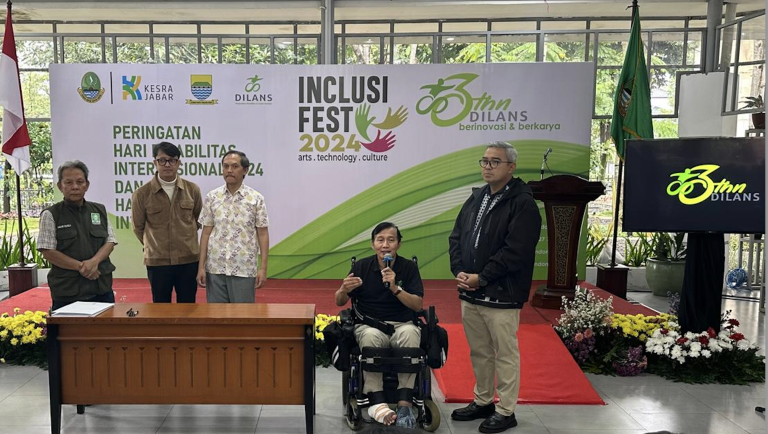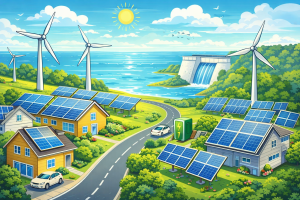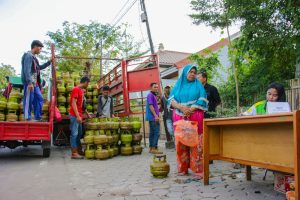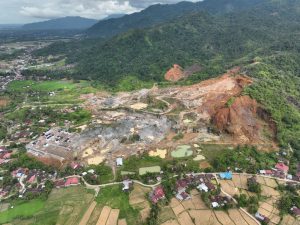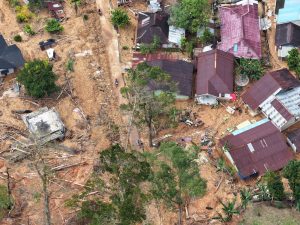Jakarta – Observers see the Climate Change Bill as an essential step towards climate justice in Indonesia, as it recognises for the first time that the right to a healthy environment explicitly includes vulnerable groups, including people with disabilities. Other opinions state that this major regulation must be strengthened with real responses, especially for areas now in emergency conditions due to the impacts of climate change.
This emerged in a webinar entitled “The Importance of Climate Change Impacts for Persons with Disabilities” held by the Healthy Soul Association (PJS) on Tuesday, 29 April 2025. One of the speakers, Graal Taliawo, Member of Committee II DPD RI, highlighted that although this bill contains important norms, the challenges in the field are much more complex.
“This bill reflects the spirit of the constitution, especially Article 28h, which affirms the right of every citizen to a good and healthy environment. But sea water has risen in the field, such as in North Maluku, and people’s houses are almost drowned. This needs more action than just technical regulations,” said Graal, the Drafting Committee of DPD Law from North Maluku.
According to him, areas like Tobelo in North Maluku face a real ecological crisis that cannot be handled only by technical guidelines or sectoral policies. “There must be a strong national legal umbrella to ensure climate justice reaches them,” he emphasised.
Disability and the climate crisis: Triple the risk
One of the most vulnerable groups in the context of climate change is people with disabilities. In the same forum, PJS Chair Yeni Rosa Damayanti said that people with disabilities face at least three forms of vulnerability in climate disasters.
The first is the vulnerability of safe evacuation. Yeni cited the case of a disabled wheelchair user who lives with only her elderly mother.
“When everyone is busy saving themselves, who will help them? Especially for people with mental disabilities, who are often kept hidden by their families. They can be missed by rescuers and be found lifeless,” he said.
The second vulnerability relates to the economy. After a disaster, people usually have to change locations or jobs, but for people with disabilities, this is much more complicated.
“Employment opportunities for people with disabilities are limited. If they have to move, it can cut off their only livelihood,” said Yeni.
The third vulnerability is post-disaster accessibility. Many evacuees are moved to temporary or permanent shelters that are not disability-friendly.
“The new homes have no wheelchair ramps, no accessible toilets. This makes them even more isolated and living in danger,” she added.
Push for inclusive participation in the bill
In the Climate Change Bill discussion, groups of people with disabilities who are members of the People’s Alliance for Climate Justice (ARUKI) have expressed their aspirations for their rights to be explicitly included in the draft regulation.
Graal Taliawo welcomed the move and emphasised that climate justice means no group should be left behind, including people with disabilities and communities in disadvantaged or directly affected areas.
Indonesia has ratified two important international instruments related to climate change: the Paris Agreement through Law No. 16 of 2016 and the Kyoto Protocol through Law No. 17 of 2004. However, implementation at the domestic level is not considered fully in favour of the most affected groups.
“Do not let Indonesia only be strong in global commitments, but weak in local implementation. Climate justice is not just about emissions, but about who is first and worst affected,” Yeni concluded. (Hartatik)
Banner photo: 2024 Inclusifest, organised by Dilans, a movement advocating the disabled and elderly, based in Bandung, West Java. (nsh)

